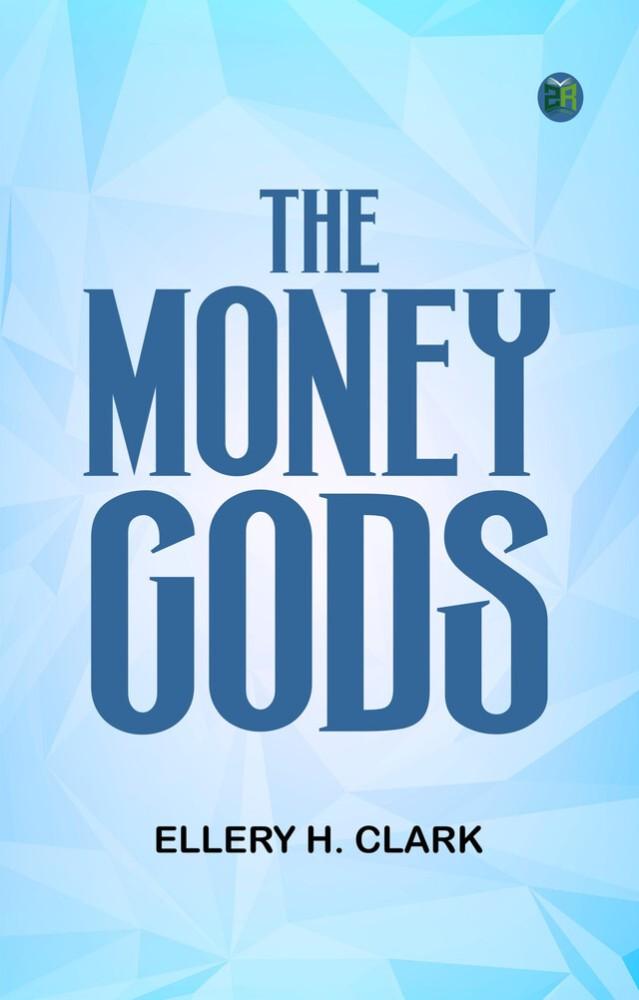"The Money Gods" is a novel by Ellery H. Clark that delves into the intricate relationship between wealth, power, and morality in society. Originally published in 1922, the book offers a compelling narrative exploring the ethical dilemmas and moral complexities inherent in the pursuit of financial success.
Set against the backdrop of the early 20th-century financial landscape, the story follows the lives of several characters whose destinies intertwine through their involvement in high finance. The novel provides a panoramic view of Wall Street, depicting the speculation, competition, and ethical challenges that define the era.
At the center of the narrative is the charismatic financier Lucien Partridge, whose rise to prominence symbolizes the allure and pitfalls of wealth. Partridge is portrayed as a master manipulator, capable of wielding his influence to achieve his ambitions, yet he is also haunted by the moral implications of his actions.
Through its diverse cast of characters, including bankers, brokers, industrialists, and speculators, the novel explores themes of greed, corruption, and the effects of unchecked ambition. It raises profound questions about the nature of success, the meaning of wealth, and the price of moral compromise.
Ellery H. Clark, the author, was not only a novelist but also an accomplished athlete, known for winning the high jump and long jump events in the first modern Olympic Games in 1896. His diverse experiences enrich the narrative, providing a unique perspective on the societal dynamics of his time.
The novel has been reprinted multiple times, with editions published as recently as 2020, reflecting its enduring relevance.
"The Money Gods" remains a thought-provoking examination of the power dynamics and moral ambiguities inherent in the pursuit of wealth and power, offering readers insight into the complexities of human nature and the ethical challenges within the financial world.
#themoneygods
#elleryhclark
#wallstreet
#trending
Set against the backdrop of the early 20th-century financial landscape, the story follows the lives of several characters whose destinies intertwine through their involvement in high finance. The novel provides a panoramic view of Wall Street, depicting the speculation, competition, and ethical challenges that define the era.
At the center of the narrative is the charismatic financier Lucien Partridge, whose rise to prominence symbolizes the allure and pitfalls of wealth. Partridge is portrayed as a master manipulator, capable of wielding his influence to achieve his ambitions, yet he is also haunted by the moral implications of his actions.
Through its diverse cast of characters, including bankers, brokers, industrialists, and speculators, the novel explores themes of greed, corruption, and the effects of unchecked ambition. It raises profound questions about the nature of success, the meaning of wealth, and the price of moral compromise.
Ellery H. Clark, the author, was not only a novelist but also an accomplished athlete, known for winning the high jump and long jump events in the first modern Olympic Games in 1896. His diverse experiences enrich the narrative, providing a unique perspective on the societal dynamics of his time.
The novel has been reprinted multiple times, with editions published as recently as 2020, reflecting its enduring relevance.
"The Money Gods" remains a thought-provoking examination of the power dynamics and moral ambiguities inherent in the pursuit of wealth and power, offering readers insight into the complexities of human nature and the ethical challenges within the financial world.
#themoneygods
#elleryhclark
#wallstreet
#trending
"The Money Gods" is a novel by Ellery H. Clark that delves into the intricate relationship between wealth, power, and morality in society. Originally published in 1922, the book offers a compelling narrative exploring the ethical dilemmas and moral complexities inherent in the pursuit of financial success.
Set against the backdrop of the early 20th-century financial landscape, the story follows the lives of several characters whose destinies intertwine through their involvement in high finance. The novel provides a panoramic view of Wall Street, depicting the speculation, competition, and ethical challenges that define the era.
At the center of the narrative is the charismatic financier Lucien Partridge, whose rise to prominence symbolizes the allure and pitfalls of wealth. Partridge is portrayed as a master manipulator, capable of wielding his influence to achieve his ambitions, yet he is also haunted by the moral implications of his actions.
Through its diverse cast of characters, including bankers, brokers, industrialists, and speculators, the novel explores themes of greed, corruption, and the effects of unchecked ambition. It raises profound questions about the nature of success, the meaning of wealth, and the price of moral compromise.
Ellery H. Clark, the author, was not only a novelist but also an accomplished athlete, known for winning the high jump and long jump events in the first modern Olympic Games in 1896. His diverse experiences enrich the narrative, providing a unique perspective on the societal dynamics of his time.
The novel has been reprinted multiple times, with editions published as recently as 2020, reflecting its enduring relevance.
"The Money Gods" remains a thought-provoking examination of the power dynamics and moral ambiguities inherent in the pursuit of wealth and power, offering readers insight into the complexities of human nature and the ethical challenges within the financial world.
#themoneygods
#elleryhclark
#wallstreet
#trending
File Type: pdf
0 Comments
0 Shares
2K Views
0 Reviews





